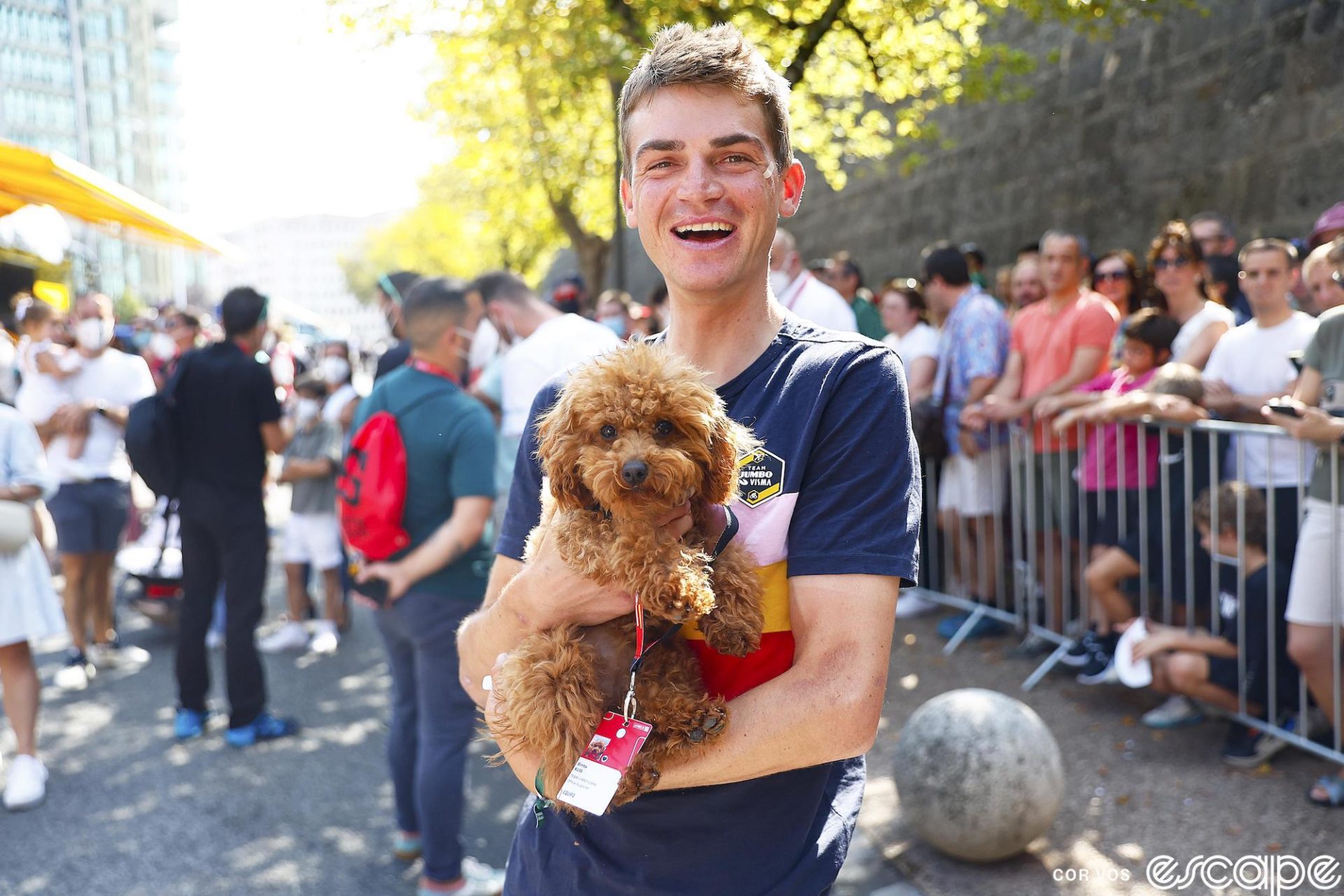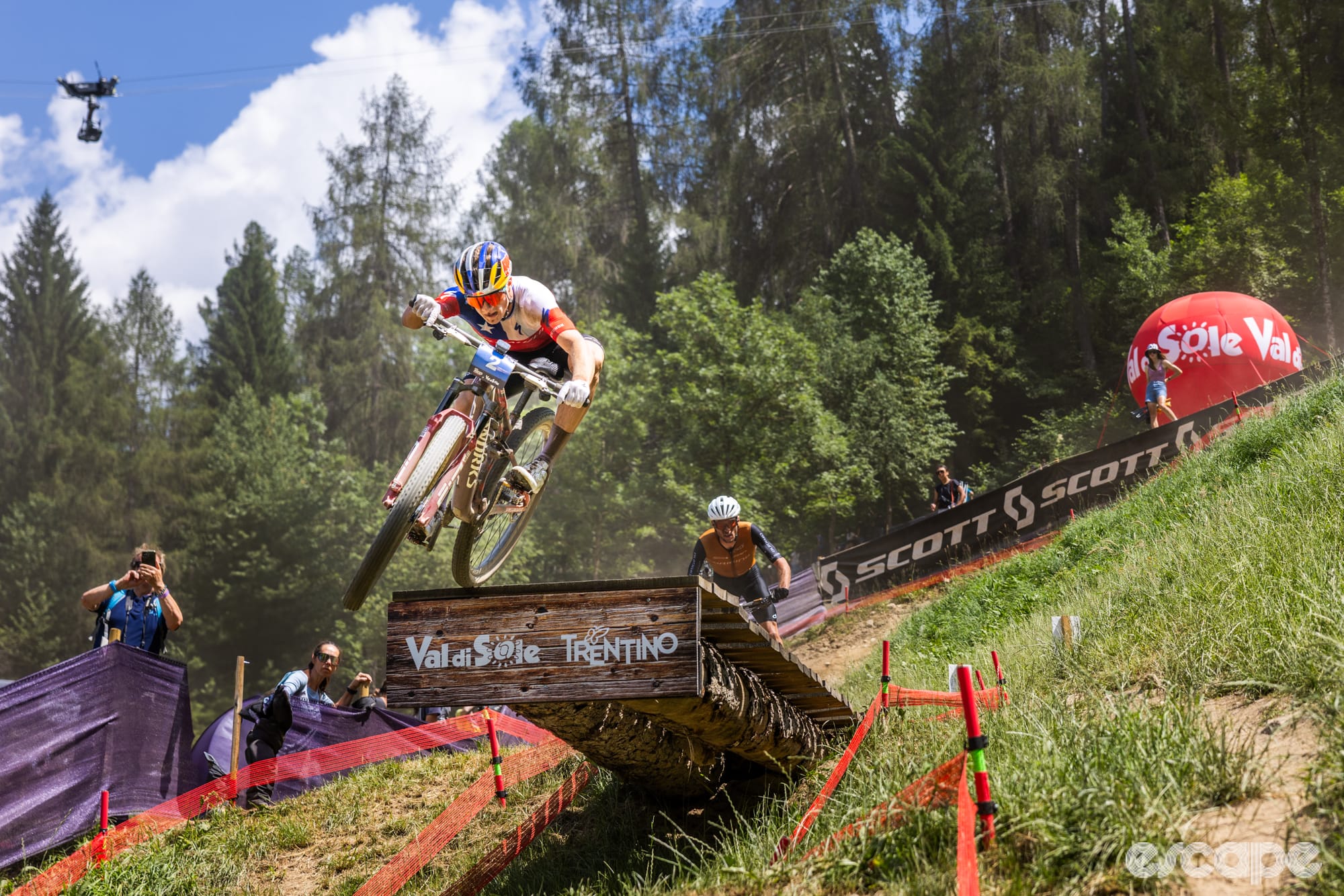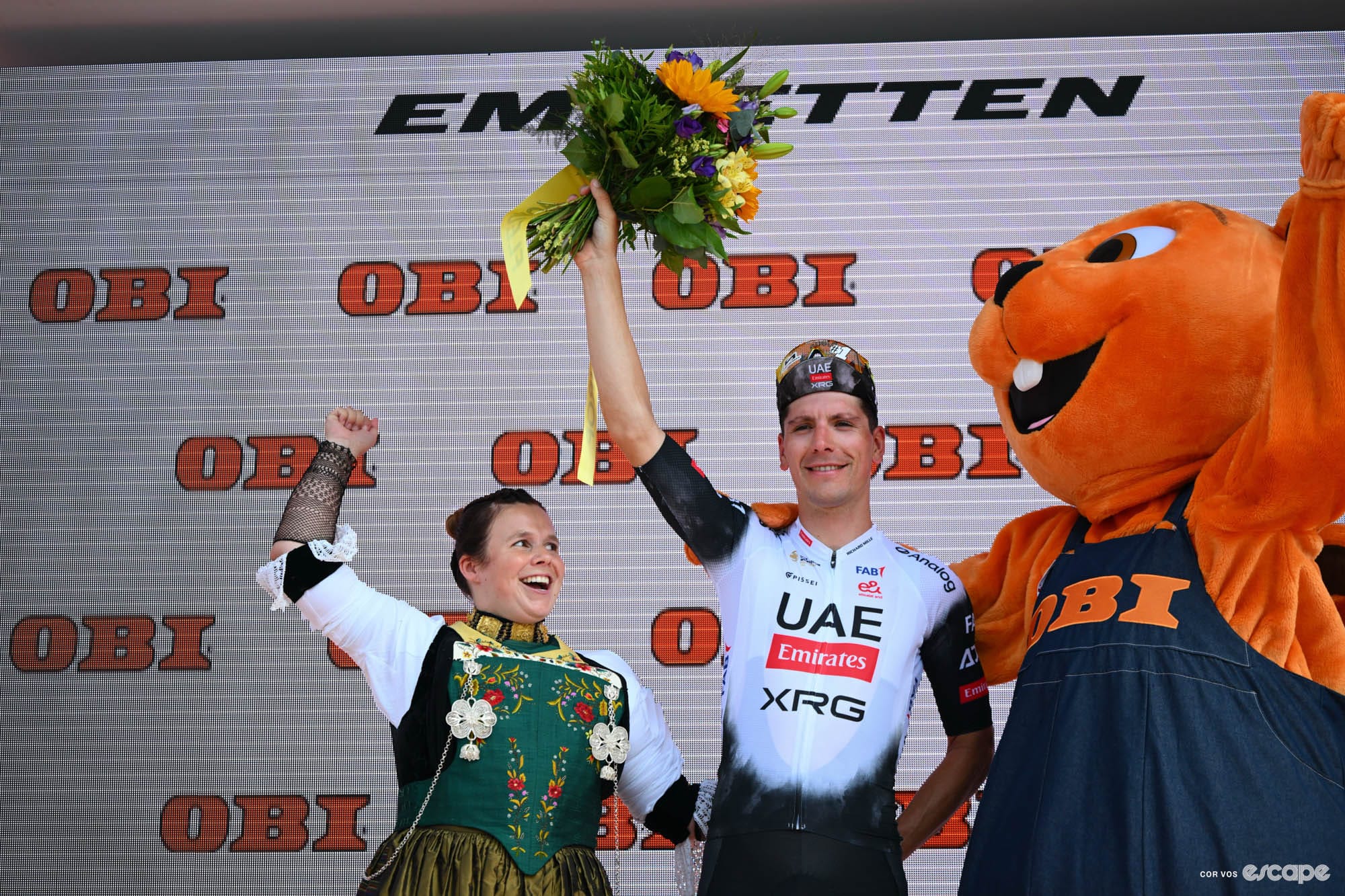The Vuelta a España is always full of surprises, but none, this year, top the emergence of Sepp Kuss as its possible winner.
For over a week now, the memes – GC Kuss, Sepp-tember, etc. – have made the rounds, and the general gist is a kind of delighted incredulity that after 15 stages, Sepp Kuss, the ironman superdomestique who’s played a role in four straight Grand Tour titles for his Jumbo-Visma team, might get one of his own.
Is this damnation by faint praise? Not exactly, but even Kuss’s own colleagues seem somewhat surprised to see him in this position. “An outsider,” Remco Evenepoel had called him not long ago. That’s partly but not only because Kuss came to this Vuelta as decidedly the third option on a stacked team with both Tour de France winner Jonas Vingegaard and Giro d’Italia winner Primož Roglič, who stood to tie Roberto Heras for most-wins ever in the Vuelta.
It's partly but not only because this is Kuss’s third Grand Tour this season and fifth in a row and at some point, does the man not get tired? And it’s partly but not only because, while Kuss is among the best climbers in the world, the Eagle of Durango has historically displayed at-best erratic time trial skills. Even in a race with a single TT, facing off against TT masters like Vingegaard, Roglič, and Evenepoel, the thinking went, might be enough of a liability to doom him.
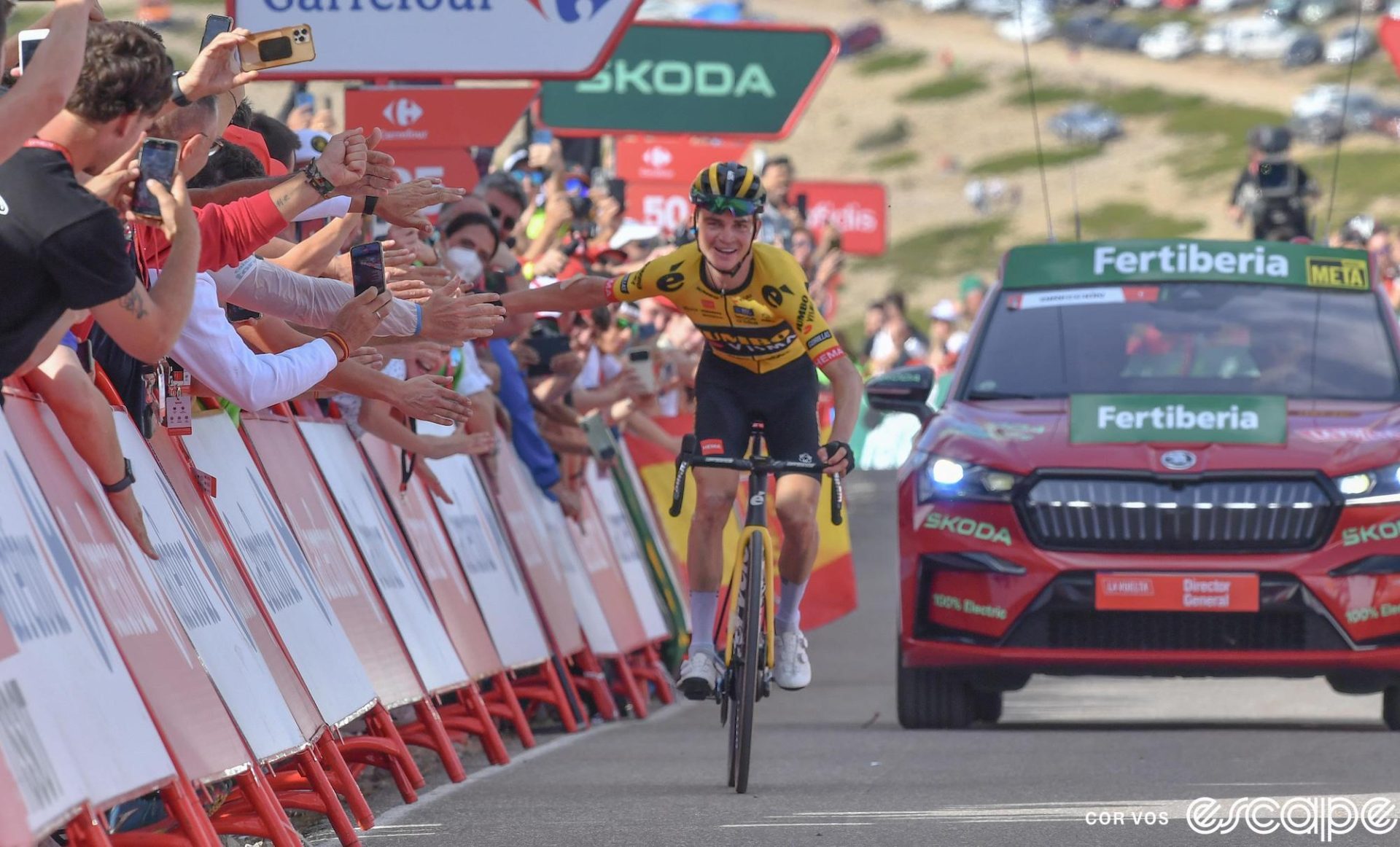
The other, unspoken, and maybe biggest reason bike racing fans, the media, and even Kuss’s colleagues are surprised to see him entering his ninth straight day in the red jersey is that it’s never been a sure thing that Kuss himself even wanted it.
Three years ago, I profiled Kuss for Bicycling magazine, and the main theme of the piece even then was about how he was navigating his path as a professional bike racer and his own competitive ambitions. The seeds for that profile were sown in a 2020 interview with Procycling, where he said, “I can’t imagine myself being a Grand Tour contender.” Even when we spoke a year later and I asked whether that was still true, he hedged, saying “It’s not something I don’t want to do …” before hesitating.
For that Bicycling story, team representatives said all the right things about Kuss’s potential, but that was about as far as it went. And in the years that followed, in smaller, week-long races where he did get a leadership opportunity, results were good-but-not-great. As I wrote, the thing about racing for Jumbo was the team didn’t saddle him with pressure to ride GC, but it also wasn’t waiting on his development into a leader. Even then, the team had Roglič and Tom Dumoulin, and of course, that 2021 Tour was where Vingegaard first burst on the scene as a contender himself.
TL;DR, certainly by this year, the window for Kuss’s emergence as a team leader for a Grand Tour seemed to have closed. And Kuss himself seemed pretty OK with that. Why not? I'm mindful that, very often with athletes, we project our own wishes onto them without regard for their own. So it’s worth noting that Kuss himself has rarely spontaneously mentioned his own competitive goals. When I talked to his parents for the Bicycling story, his mother, Sabina, noted that Kuss had always been an empathetic kid – aware of and sensitive to other people’s feelings, often over his own.
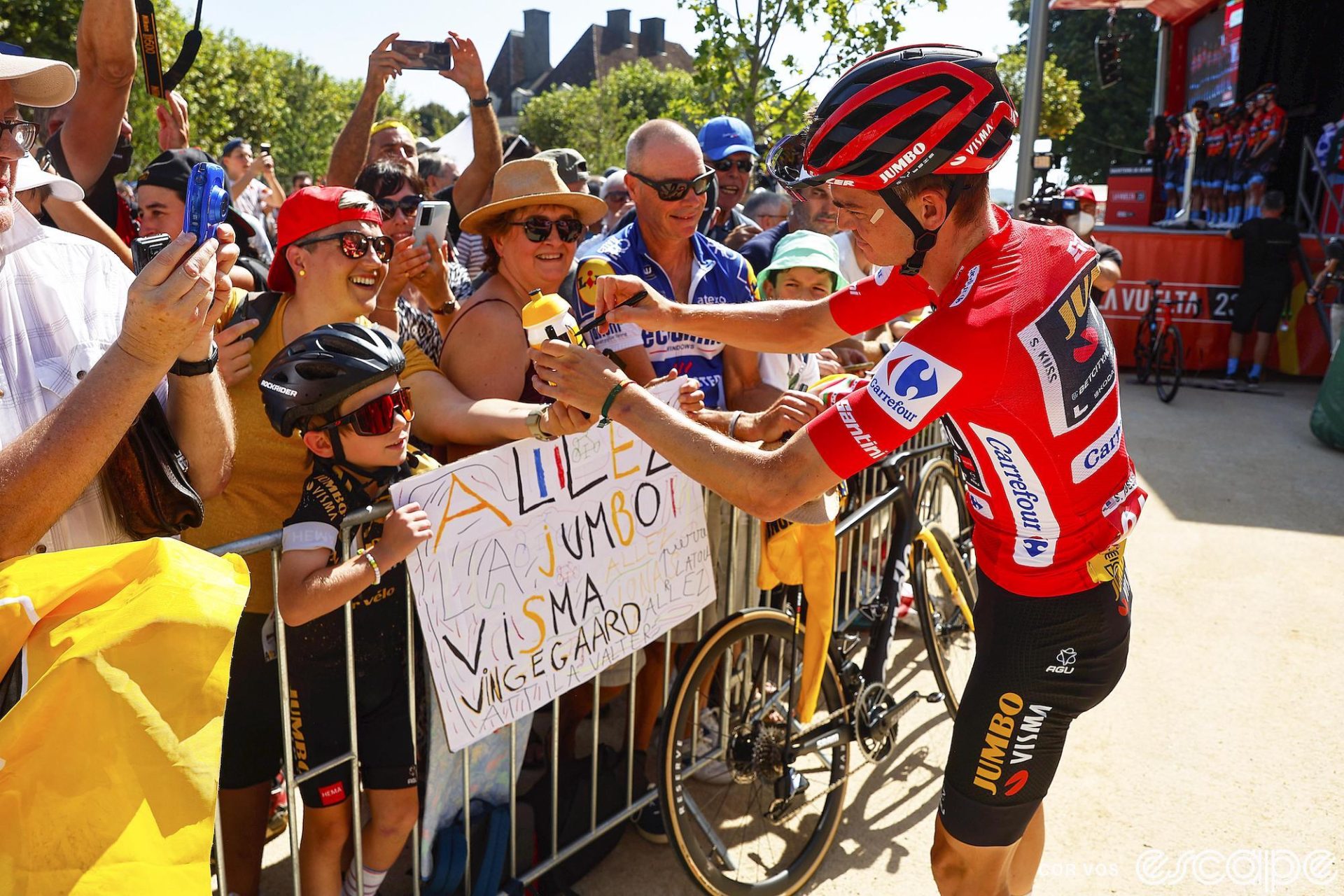
His junior mountain bike coach, Durango Devo's Chad Cheeney, told me Kuss was never motivated by results, and would sometimes stop to help competitors in a race if they had a mechanical. Kuss's college roommate told me Sepp would get up early on weekends, make a huge pot of coffee for the house, and clean everyone’s bikes. All that sounds suspiciously like selective myth-building or hagiography, but those anecdotes were just several in a consistent theme I heard from sources. By all accounts, Kuss is a kind, decent man who cares sincerely about other people and was not overly concerned with his own fame and results.
That makes him a fantastic team player and – if you’ve got the physical gifts to back it up – is a very rewarding gig. As a top équipier on a top team in the sport, Kuss is likely making an absolutely ridiculous, possibly seven-figure salary to wear stretchy pants and shepherd his teammates up hills very fast. Better still, that’s all without the massive pressure to win that comes with the territory of being a Grand Tour contender: the imperative for consistent performance with zero bad days, the public responsibilities of the race leader for podium ceremonies and daily interviews, and of course the constant leadership of the team itself, managing up the staff chain and down the roster to keep everyone focused on and motivated for the same goal.
All that is where things go pear-shaped, and is territory where, historically, Kuss has hesitated to venture. Until now. Therein lies his biggest risk. It’s hardly incisive analysis to note that the biggest threat to Kuss’s status as race leader comes from inside his own team bus. But there are two scenarios where Kuss wins the Vuelta as a teammate only.
First: he has a slightly off day. I don’t mean a bad, 27-minute-crack kind of day. Jumbo absolutely, deeply wants to become the first team to sweep all three Grand Tours in a single season. And with riders in second and third, if Kuss’s form wavers at all over the final trio of summit finishes in the Vuelta’s third week or that nightmare of a stage 20 profile, I’d be very surprised if Vingegaard and Roglič are instructed to wait with him. That scenario, while a bummer for Kuss, would be understandable.
The other risk is intra-team rivalries. Geraint Thomas thinks that’s likely. I’m not sure Thomas is right (Enric Mas, for one, disagrees). The Ineos Grenadiers’ rider’s view is formed from his experiences battling Chris Froome at the 2018 Tour, and I’d submit that Froome is a special case. Froome’s own perspective emerged from two Grand Tours he likely would have won had then-team Sky not held him back to ride for Bradley Wiggins, and the insecurity only built from there.
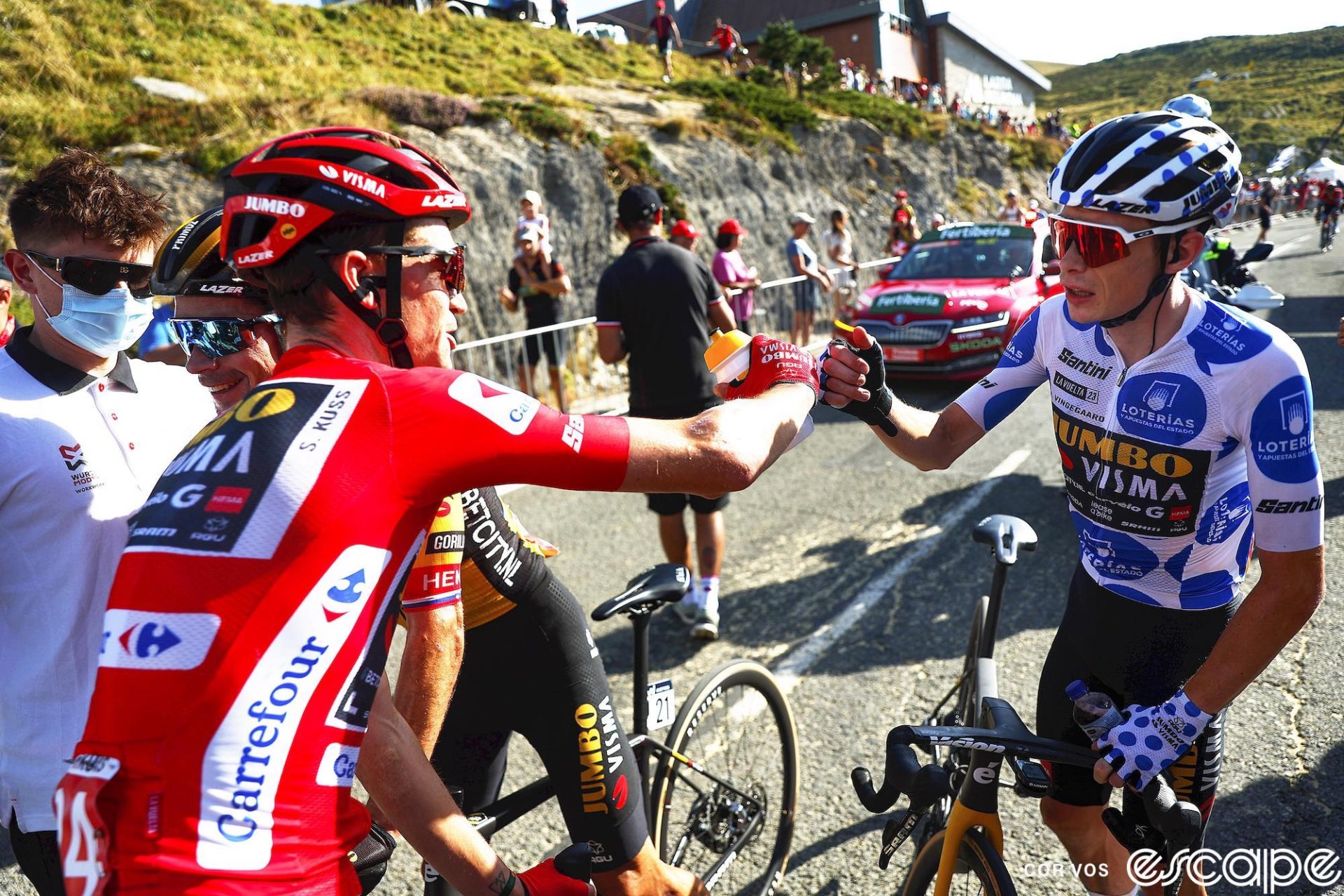
Watching the Vuelta so far, I seriously doubt the attacks will come from Roglič. Since Kuss took the lead, I’ve not seen the Slovenian turn so much as a single pedal in a way that could be perceived as aggressive to Kuss. Perhaps not coincidentally, Roglič has lost, and won, races in heartbreaking fashion himself; it may be my own projection, but I think he sees this opportunity for Kuss for what it is, and would not willingly destroy it.
Vingegaard is something of a cipher. He was a late, surprise addition to Jumbo's Vuelta roster. His interviews are so naturally taciturn that it’s difficult to get a true sense of his ambitions for being here. And he’s been notably bolder than Roglič, at least since Kuss took the race lead. He was unafraid to attack on the Tourmalet stage, and when Kuss took off alone in pursuit later, it seemed to signal that while teammates taking stage wins was perfectly fine, the American was not about to give up his race lead for the appearance of team comity.
That said, so far in post-race situations I’ve detected none of the obvious tension that marked Thomas-Froome in 2018, or Froome-Wiggins at the 2012 Tour. Kuss congratulated Vingegaard on his win, the pair are seen talking and even laughing together at warm-down, and Roglič was, by Roglič standards, positively ebullient in his body language toward Kuss as well.
Kuss’s own demeanor is, for me, the most important sign that separates this from the Thomas-Froome or Froome-Wiggins dynamic. Put a lot of riders in the race lead at a Grand Tour for as long as Kuss has been in red and they’ll be wound tighter than an eight-day clock. But Kuss is, to throw back to my headline, loose. Living his best life. High-fives with fans, that chug of cava on the podium, his back-slapping and hugs for Jonas and Rog, the almost cheerful way he goes about his race leader duties? The Dude wasn’t this chill.
If Kuss has found a way to tamp down the inevitable demons of internal and external pressure about being a team leader that he’s always held at arm’s length, he’s done so simply by relaxing into himself. Outdoor sports enthusiasts like to talk about Type 1 and Type 2 fun. For most GC contenders, a campaign for the overall title in a Grand Tour very much fits into the second category, if even that. But Kuss seems to be able to enjoy his run in real time. As much or more than his impressive fitness or his indomitable team, that remarkable feat of mindfulness has a lot to do with why he’s still here in the race lead with six stages to go.
After four Grand Tours in a row turning himself inside out for his teammates, the Vuelta is Kuss’s own YOLO race. He doesn’t seem to be worried about other teams, his own team dynamic, the slate of three brutal stages that will decide his Vuelta fate, or, well, much of anything. And if he rides into Madrid in red, it will be as much because of his attitude and confidence as his legs.
Did we do a good job with this story?

